Happy Hump Day! I’m Tawny, an advice columnist better known as “The Sober Sexpert” and author of Dry Humping: A Guide to Dating, Relating, and Hooking Up Without the Booze. I’m here to empower you to find your *intrinsic* courage without booze—regardless of your relationship status—one date at a time.
Before we dive into this week’s question, I have two fun announcements:
You can now submit questions for future issues here. Can’t wait to hear from you!
I’m co-hosting an event tonight that’s all about setting (and accomplishing!) goals in sobriety. Grab your ticket here and see the flyer above for more info. Please note the venue change.
Alright, let’s dive in…
Dear Tawny,
I just turned 30, and I am on a mission to explore my body this year. I’m not really sure if I want to give up drinking alcohol in my regular life, but I’m considering experimenting with booze-free sex—something I haven’t done since high school.
An ex-boyfriend had an issue with “whiskey d*ck,” and I’ve heard from friends that it’s common for men. But I’m a cis woman and wondering how drinking may be impacting my sex life. If a guy can’t get it up after too much alcohol, then what happens to those of us with vaginas? I honestly don’t know! Help.
- Sober Sex Curious
Hey, Sober Sex Curious! Thank you for asking this question because now I get to flex my skills as The Sober Sexpert while discussing one of my favorite topics: why sober sex is better! In fact, my partner and I were interviewed in Men’s Health about how ditching booze made our sex life better.
This issue explores:
Why We Rely on Liquid Courage to Open Our Minds
What Alcohol Does To Our Bodies
Sexual Anhedonia (Keep reading to learn what that word means!)
The Link Between Alcohol & Sexual Assault
I’m about to nerd out with y’all. Are you ready for some science?!?!
Why We Rely on Alcohol to Open Our Minds
Alcohol is a mood-altering substance that can create a sense of euphoria. This can provide that sense of liquid courage that we know too well. In a world where we're told that liquid courage allows us to access parts of ourselves that we don't dare tap into while sober (aka our subconscious mind), why would we give up such a magical elixir?
Well, the truth is that alcohol isn't the only way to tap into our innermost desires. We can access different parts of ourselves through mindfulness and meditation, journaling, taking psychedelics, or exploring different types of therapies. Perhaps, as 21st-century humans, we gravitate toward alcohol as the easier, quicker, and sometimes cheaper option. Plus, there are added societal stigmas attached to some of the aforementioned alternative routes.
Alcohol provides fewer barriers to entry as it’s relatively cheap to buy and easy to find despite technically being a drug regulated by federal, state, and local governments. Meditation seems to require spending time learning how to do it, followed by a whole lot of anxious stillness (what, just me?). Therapy is expensive and rarely covered by health insurance, and it can be difficult to find the right mental health professional or type of therapy that you feel comfortable with. Psychedelics carry their own taboos and stigmas to eschew before allowing true mind expansion. Plus, there’s the feeling of sober guilt that many folks feel when it comes to engaging in plant medicines or psychedelics—even though recent research showed that psilocybin (the psychedelic compound found in mushrooms) may be helpful in treating substance use disorder.
But like most things, finding authentic, uninhibited versions of ourselves can be worth the (hard) work. This arduous, never-ending journey can feel like the mental equivalent of climbing Mt. Everest. Especially when the people around us can often drink "normally" and don't have to do the work we're doing.
I’m aware that telling someone to invest time and money into their mental health in order to have better sex (and overall happiness) is a tough sell in an increasingly fast-paced society that wants a pill to cure everything. I get it because I’m right there with you, learning as I go, too. I’m nearly eight years sober and in a committed relationship of five years. And I’m still actively processing repressed memories while developing a healthier relationship toward sex.
Part of me finds comfort in the fact that this journey is never-ending, while the part of me is truly sick of “doing the work.” Yet here I am doing it anyway—one newsletter that I send or a pre-order of my book at a time.
What Alcohol Does To Our Bodies
Leaving booze out of the bedroom also has physical benefits. Alcohol is a depressant, which means that it depresses our nerve cells. This can hinder brain function, which dulls all of our senses. In layman’s terms… booze messes with our ability to feel pleasure, also called anhedonia. But more on that in a bit.
A recent study published in the science journal, Sexual Medicine, explores the risk of sexual dysfunction when women drink alcohol. The study reveals that 74% of cisgender women who self-reported alcohol consumption experience sexual dysfunction. Genital response decreases with each drink, making the potential of a female orgasm even harder to achieve.
Plus, alcohol causes dehydration. *All* body parts can be affected by this. Yes, even the vagina.
When it “comes” to penises (pun intended!), alcohol’s effects are more visible. Erectile dysfunction and prolonged ejaculation are often caused by binge drinking. While alcohol lowers inhibitions, it also lowers blood flow. This means that while psychologically, you may be up for something adventurous in the bedroom, you may not be “up” for it physically. Those lowered inhibitions can also lead to lowered standards. This could mean deciding things like who you want to sleep with while intoxicated to whether or not you remember to use protection.
Additionally, alcohol abuse can lead to liver disease, which “reduces the testosterone levels that affect both libido and erectile function,” says Dr. Asif Muneer, urologist and andrologist. It also has a strong impact on folks with vulvas.
“Alcohol dehydrates your body, and this affects your vagina. With less body water overall, alcohol leaves your body with less fluid available for lubrication. Alcohol is also a central nervous system depressant. This means that your nerve endings aren’t as sensitive as they are when you aren’t drinking,” says Rachel Nall, a Registered Nurse Anesthetist.
Anhedonia (An-a-what-ia?!?!)
In her book Sex in Sobriety: A Qualitative Narrative Exploration of the Utilization of Mindfulness Practices for Enjoyable Sober Sex, Dr. Anadel Baughn Barbour explores the spiritual, physical, and sexual effects of multiple substances: cannabis, alcohol, opiates (depressants), and stimulants. A common theme in her studies is the concept of anhedonia, the inability to feel pleasure. This can show up by feeling detached from your body or in the form of Sexual Anhedonia. The latter happens when the body physically climaxes, but no pleasure is derived from said release.
Anhedonia is particularly resonant with booze due to alcohol’s biphasic (two-phased) quality. Alcohol has the “liquid courage” reputation primarily because of the side effects associated with its first phase. That first drink stimulates the brain’s pleasure center as dopamine travels through the brain’s synapses. This stimulation can relax the body and mind, reduce anxiety, and slightly lower inhibitions.
The second phase is where alcohol often gets dangerous due to varying intoxication levels. Binge drinking, or consuming alcohol in large quantities (4+ drinks for women and 5+ drinks for men in 2-3 hours), can cause the aforementioned physical body changes during intoxication.
Researchers propose that anhedonia may derive from the brain’s broken reward system. Substances (and many other things… like Instagram, but that’s a whole other issue) work by stimulating dopamine release. When we come down from that high, we’re left with super low levels of dopamine, which make us feel like shit.
Alcohol & Sexual Assault
I’ll explore this topic in depth in an upcoming issue, but I’d be remiss if I didn’t mention the correlation between excessive alcohol use and sexual assault.
Remember the lowered inhibitions and lowered standards we talked about? They come into play here, too. As Psychology Today’s Michael Castleman, M.A., writes in his article, The Pros and Cons of Mixing Sex With Alcohol, “When women drink, many men believe they’re more sexually available. A recent study by Iowa State University shows that compared with women who hold glasses of water, men believe that women who hold alcoholic beverages are more eager to get it on and less in need of assistance if things seem to be getting out of hand.” I’m not suggesting that an intoxicated person is, in any way, “asking for it.” I’m advocating for education and nuance on this often-ignored subject.
*Disclaimer* Some studies referenced above were conducted on a binary level. Beyond Liquid Courage values all gender identities!
Did this issue teach you something new? We’d love to hear about it!
Next week’s issue is all about two things: (a) situationships and (b) what happens when the person you’re casually seeing likes to party hard while you’re sober curious. Subscribe here so you don’t miss out!
Until next time,
P.S. This issue was edited by Irina Gonzalez, and the artwork is by Anne Porter.


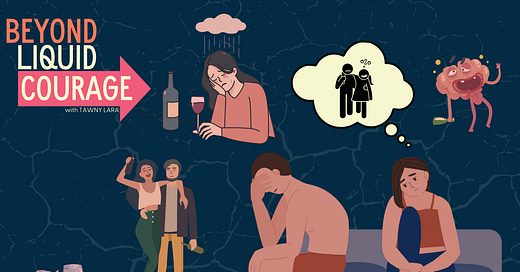



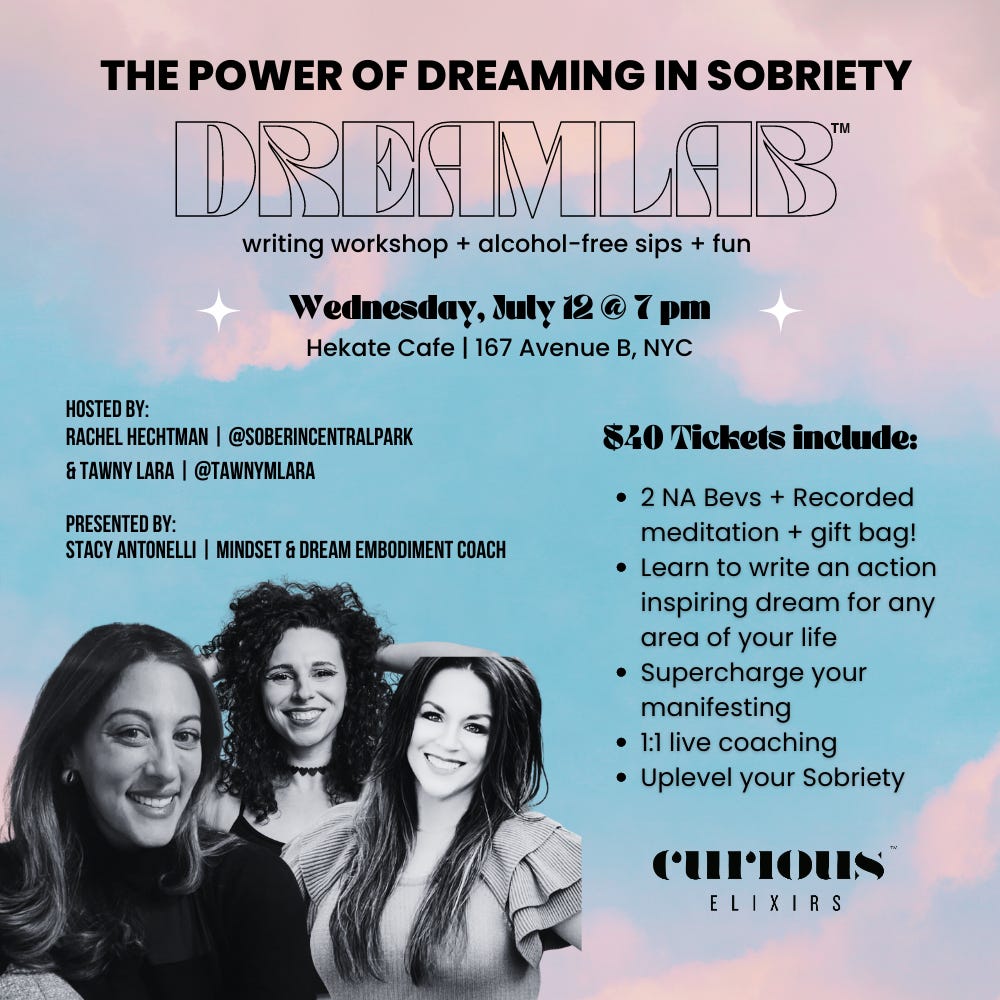

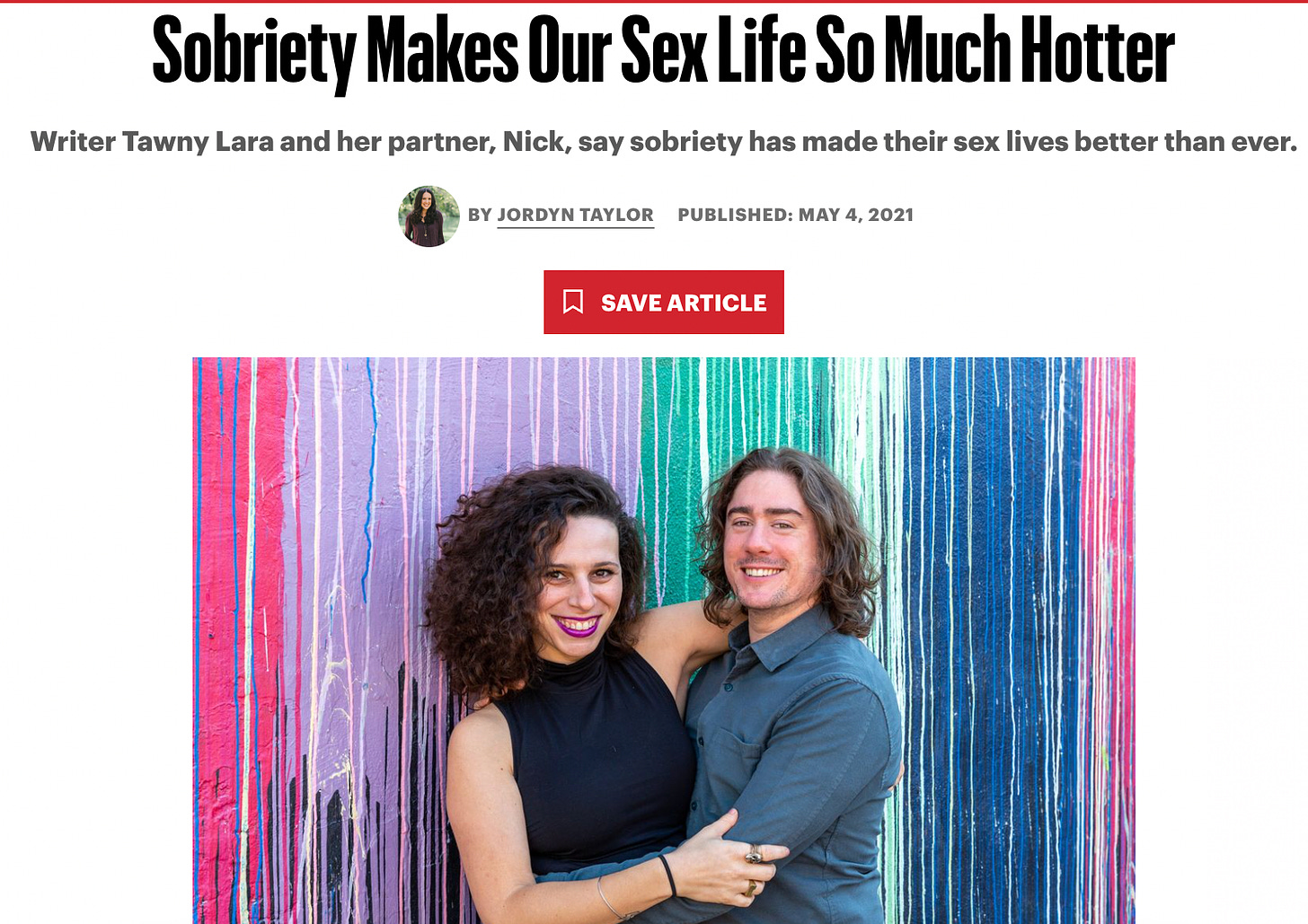

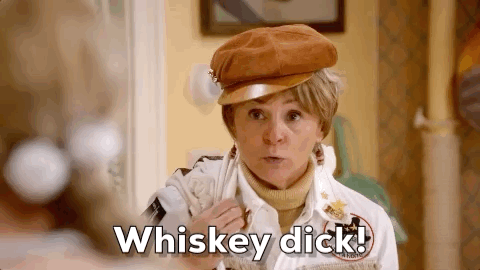
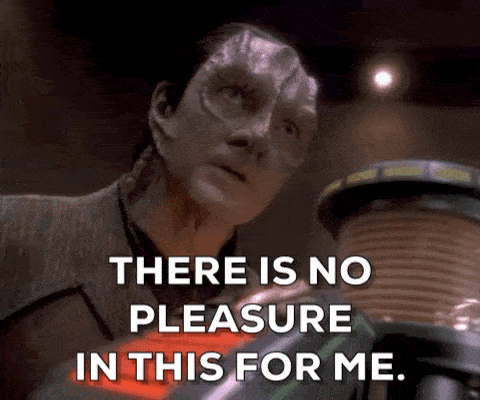
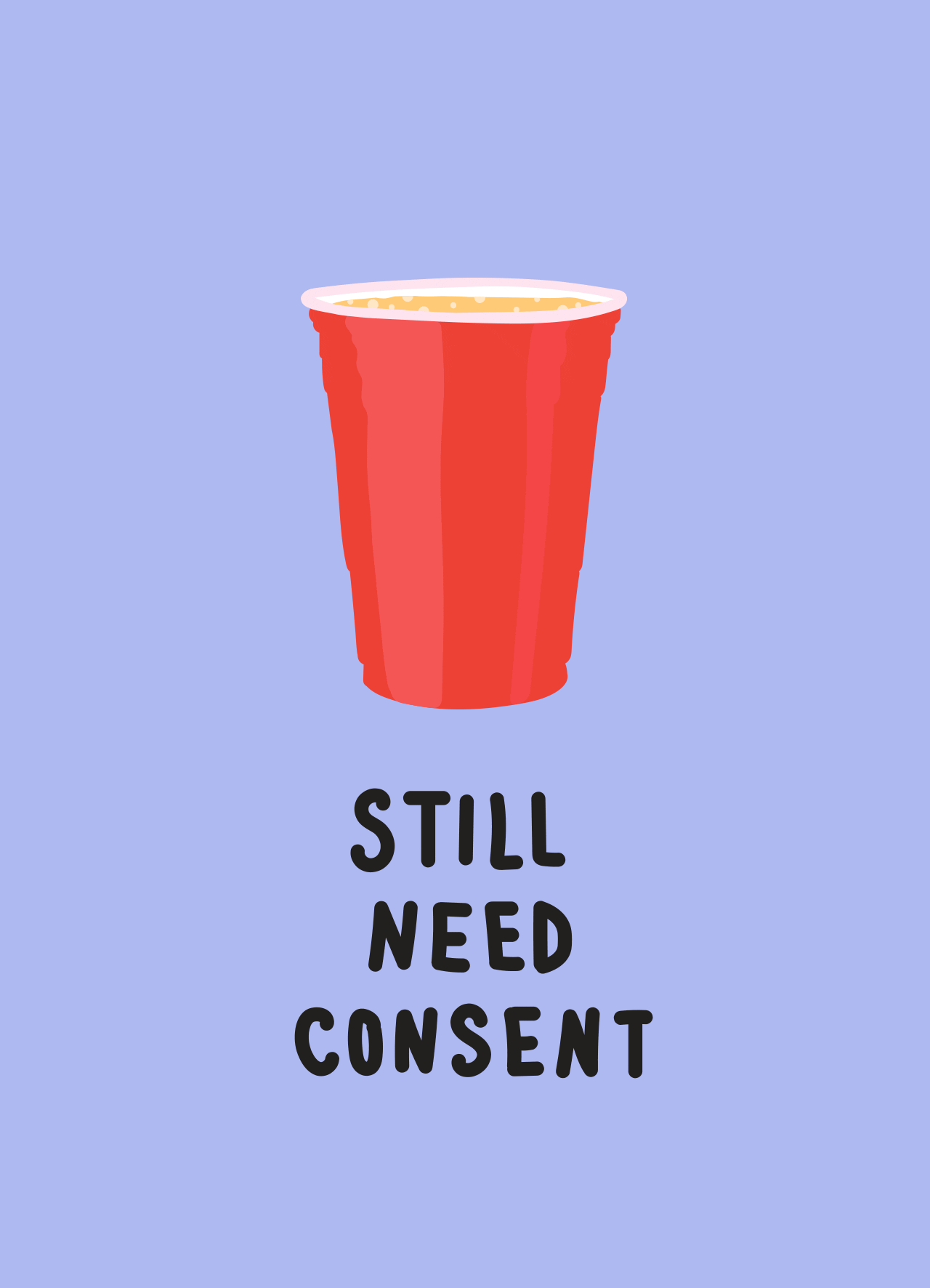
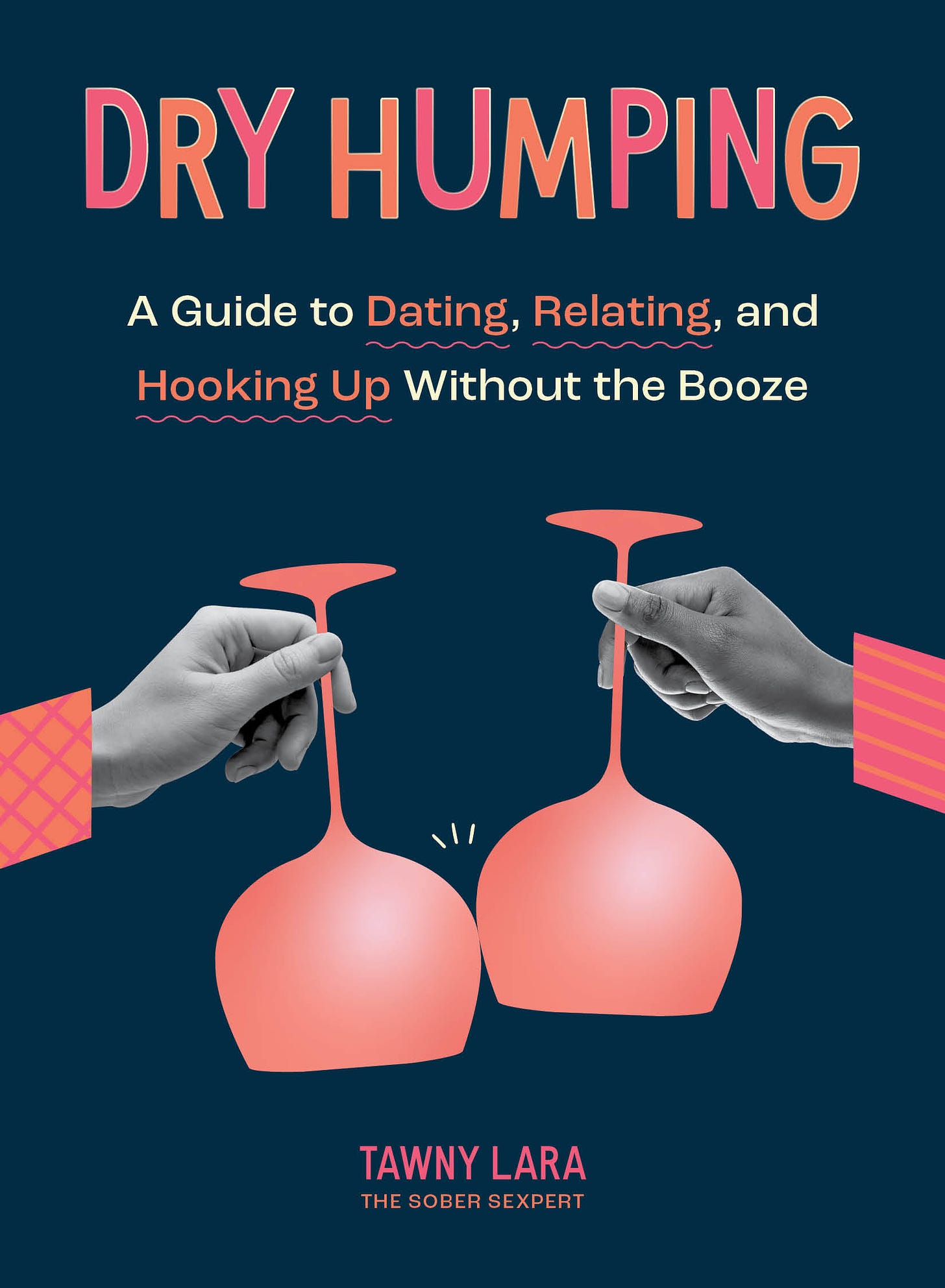
I wish I could be in NYC for that event. I love Rachel, too. I'm still getting "into" sober sex and it's a tough one. It's probably the hardest thing about sobriety for me!
This is a fascinating topic. (Great substack too) Embracing a sober approach to dating can be challenging when the date enjoys sharing a bottle of wine as a social lubricant and to reduce inhibition for the after-date. Maybe exercising and hot shower before the date is a good alternative to get natural endorphins going before the date. I’ve embraced a sober lifestyle now and still haven’t figured out sober dating yet.